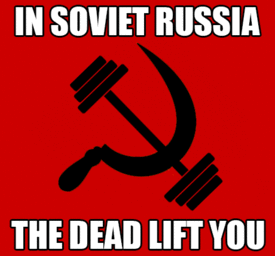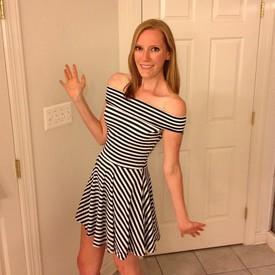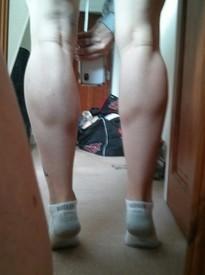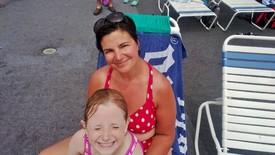Hunger versus math! Or: if I am not hungry, am I not in a deficit?

cheshirecatastrophe
Posts: 1,395 Member
I have an odd problem: sometime in the later evening, my hunger just...shuts off. I always used to enjoy a bedtime snack, so this is strange for me. (I actually still feel an emotional tug towards my favorite junk foods, but I feel so full and even bloated that the thought of eating turns me off.)
Math and calorie counting say that at this point, I am either at my calorie goal for the day (a deficit) or sometimes a few hundred calories below.
Do I trust the math and assume everything is proceeding as planned? Try to eat to goal? Or does the lack of hunger mean I'm all filled up for the day, calorie wise?
(I have made some progress, but in the sense of "3 weeks with no change, then FWOOSH, now another period of no change")
Math and calorie counting say that at this point, I am either at my calorie goal for the day (a deficit) or sometimes a few hundred calories below.
Do I trust the math and assume everything is proceeding as planned? Try to eat to goal? Or does the lack of hunger mean I'm all filled up for the day, calorie wise?
(I have made some progress, but in the sense of "3 weeks with no change, then FWOOSH, now another period of no change")
0
Replies
-
I would listen to your body. All the numbers that are used are just estimates. If you are not hungry but are close to your goal I wouldn't eat0
-
For MOST people, feeling full means you should stop eating.
For SOME people (i.e. those with eating disorders), feeling full MIGHT mean you should keep eating.
If you have no such issues with EDs, then go ahead and stop when you feel full. Logging isn't 100% accurate anyway.0 -
I can be hungry, and in a huge surplus. Overeating and still hungry for more.
I can be at a 50% deficit, and look at a pile of cookies and be all "meh". Under eating and not hungry at all.
They are correlated - you are likely to be less hungry when at the limit than when you still have calories left on the quota. Correlated ... but no guarantees.
In my book it's "stick to the program", as strictly as possible. Every deviation makes the next that much easier ... and therefore that much easier to fall off the wagon.
Stick with the program.
The fewer variables, the easier to solve problems when they crop up.
0 -
Yes, you are not. Wait...
No, you are not. Wait...
Such difficult questions. I'm going to skip that part.
IMO, if you are full, feel strong and healthy and can power through your exercises, there is no reason to eat extra to hit a magic number. That goes for the flip side, too. If you've hit your magic number, but are really hungry, eat something.
If you eat a lot of healthy foods, it's not too hard to stay full all the time. 0
0 -
My stomach, about 9pm, is like, the kitchen is closed. ;-) But just because you are not hungry does not make you in a deficit.0
-
My body is my number one indicator. If I'm really hungry, I eat more (regardless of my totals). If I'm not hungry, I don't. I don't think our bodies evolved to take in x,xxx calories per day, every day. Left to my own devices, my intake zig zags. MFP has no idea what's actually going on in me, with hormones, actual calories burns, nutrient needs, etc. Ignoring my internal biological mechanism isn't part of my plan.
And if your diet is new, it's normal to feel full before hitting your calories. Enjoy it while it lasts. Usually that ends. 0
0 -
This is not a real problem.
Not hungry? Don't eat.
(Assuming you don't have a history of ED)0 -
Thanks, everyone! Nope, no ED issues here, and I'm sorry if it came across like I was bragging. I'm an endurance athlete actually trying to lose weight more *slowly* to preserve as much muscle as possible, so potentially shortcharging calories *is* a concern for me. (And please don't be jealous--I might not be hungry at night, but as soon as I wake up in the morning, I want/need/need/need to EAT ALL THE THINGS. It's been that way since elementary school.)0
-
Sateity is mainly, but not exclusively, about calories taken in - also volume, macro and micro nutrients, hydration, habit, attitude, activity, surroundings and distractions, and maybe lots more, can influence feeling of satiety.0
-
I normally follow my body cues as long as my calories are within a healthy range for my goal (gradual weight loss). If my calories are used up and I am still hungry, I eat a snack. I don't eat a 2000 calorie snack though! If I get to the end of the day and am under goal and not hungry, I don't eat. Save those to balance the days I need a snack. However, if I were below 1200 calories for the day, I'd eat to get above that number whether I was hungry or not. This rarely happens to me though, I am always ready for a meal.0
-
You're over thinking this. If you're not hungry, don't eat.0
-
I agree with everyone else. Just to add- you feel bloated? Are you retaining a lot of water? Drinking carbonated drinks? If I was bloated every evening, I would want to change that.0
-
Knowing that you are trying to do this the slow way and need a specific amount of calories, while also knowing that you don't feel as hungry at night, then it might make sense to load most of your calories in the morning.0
-
I read this as hunger vs. Meth. Oops. Time to put my glasses on.0
-
If I'm 100 or even 200 under/over, I don't worry about it, but I try not to leave too large a deficit for the same reason you've mentioned. Also, I find that even if I'm not hungry in the evening, the next morning I'm ravenous. Even when I go way over on a holiday or something and I'm trying to eat at a deficit to make up for it, I don't do a massive deficit in one day, but try to spread the deficit out over several days (so if I'm 700 calories over where I want to be one day, I'll do a 200-calorie deficit for a few days). YMMV, but I find it helpful to stay relatively stable with intake. Also, I have a hard time getting the amount of protein I want to eat if I'm running a huge deficit. If I'm way under, I'll often eat a cup of yogurt, maybe with some nuts/seeds and honey.0
-
I've had a few scary months when I felt full really easily and without lots of food. I would typically eat around 1100cal a day and feel just fine with that. For a month, I felt good - great even - but then I started noticing hair loss and loss of libido in the second and third months and had to take a few weeks off of "dieting" to eat my maintenance (1600-1800). After the two weeks, I felt renewed and my hair grew back.
Now, I've hit a pretty busy period at work and will eat around 1200-1300cal a day (I'm 5' 1" and female, so anyone who tells me I'm "starving" myself, please refrain or supply me with a magical heightening potion to increase my BMR) without feeling hungry. Sometimes, I do have to force myself to remember to eat lunch or snacks to make sure I get the right amount of calories in.
So in this regard, I advise to to pay attention to both hunger and your current caloric intake. If you're not hungry, but you have a good 300-500cal left to go until you hit your weight loss caloric goal, try to eat. Maybe let yourself have a treat, or if it's easier, drink your calories through a smoothie or something. If you're not hungry, but you have 100cals to go, don't worry about it.
But all in all, pay attention to how you feel over the long term. A day under and a day over here and there aren't going to kill you or make you fat. But consistent deficit more than you can personally handle may be bad for you, so pay attention and take notes about how you feel and how your body is reacting.0 -
This content has been removed.
-
If you are losing weight faster than you want to, then yes, you need to eat more. As you eat more, you will become used to that amount and reset your hunger cues (to an extent). Why don't you eat more in the morning when you are starving and less at night? I'd also look at your weekly average rather than daily. Last week, for instance, I had one day with a net less than 900 and another day with a net over 2000. It all averaged out to 1561 for the week which was within 20 cals of what I was aiming for.0
-
Given that you don't have a history of ED: If you have the energy to do your workouts and get through your day and you aren't showing signs of malnutrition... And you aren't hungry... Then don't eat! If you are hungry, or you are feeling low energy or your body is showing signs of malnutrition then eat! But ftr: hunger is a very poor indicator of calorie deficit or surplus.0
This discussion has been closed.
Categories
- All Categories
- 1.4M Health, Wellness and Goals
- 398.3K Introduce Yourself
- 44.7K Getting Started
- 261K Health and Weight Loss
- 176.4K Food and Nutrition
- 47.7K Recipes
- 233K Fitness and Exercise
- 462 Sleep, Mindfulness and Overall Wellness
- 6.5K Goal: Maintaining Weight
- 8.7K Goal: Gaining Weight and Body Building
- 153.5K Motivation and Support
- 8.4K Challenges
- 1.4K Debate Club
- 96.5K Chit-Chat
- 2.6K Fun and Games
- 4.7K MyFitnessPal Information
- 17 News and Announcements
- 21 MyFitnessPal Academy
- 1.5K Feature Suggestions and Ideas
- 3.2K MyFitnessPal Tech Support Questions














